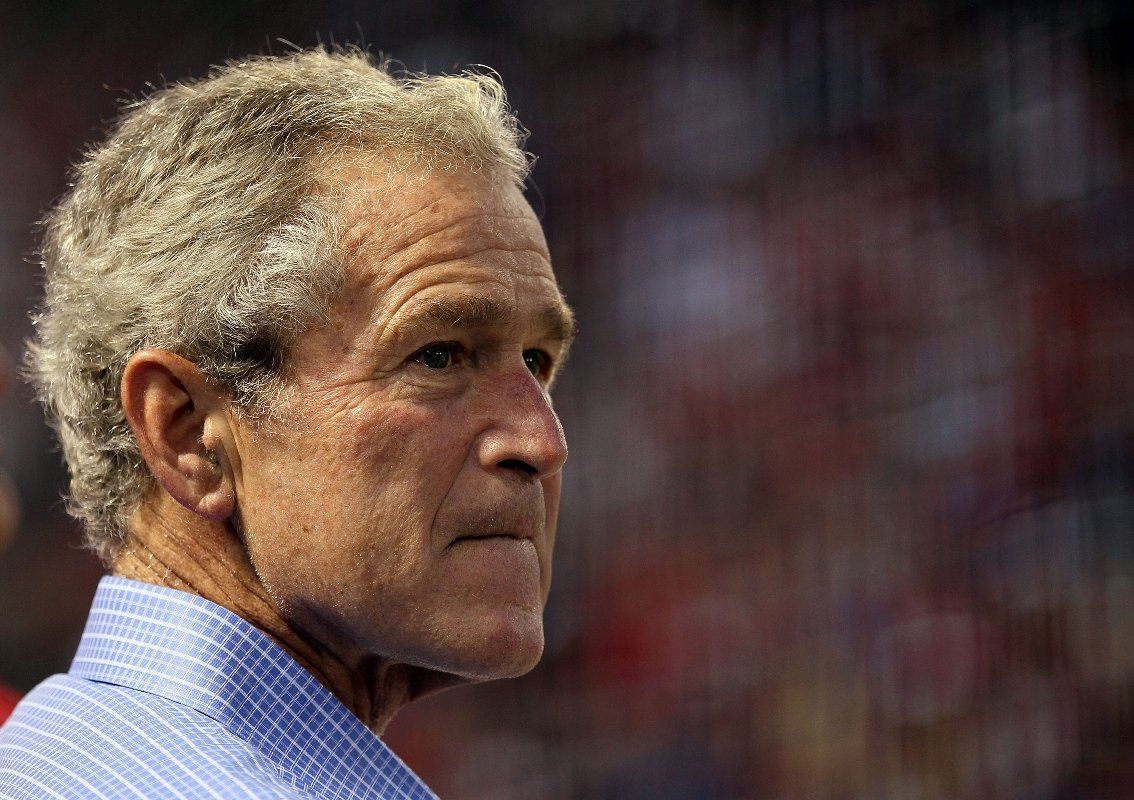
At the height of his presidency, President George W. Bush's approval rating hit 90 percent. It was the week following Sept 11, 2001, and the controversial president was suddenly much less controversial. When he left office eight years later, his approval had sunk to just under 30 percent. No matter, Bush says now. In office, he says he never paid much attention to his ratings or his critics—an air of confidence and certainty in his decisions guided much of his presidency.
In an interview with NBC, Bush's first since leaving office, the former president addressed every major issue of his presidency, from 9/11 to Hurricane Katrina to the financial collapse in 2008. There were mistakes, he admits – like declaring Mission Accomplished about Iraq's combat operations, and being photographed flying over Katrina-ravaged Louisiana – but he made no apologies for the decisions he made with the information he had.
The man who normally lacks doubt, however, did show signs that his past decisions may not have been entirely wise in retrospect. He spoke of a pit in his stomach when realizing that Iraq contained no weapons of mass destruction, the primary rationale for invading the country. He also defended the Troubled Assets Relief Program in 2008, now known as the bank bailouts and is immenseley unpopular. "People hate it," Bush acknowledged. When confronted with the statistic that over half of Americans fault President Obama for the move, Bush laughed it off, suggesting that "50 percent of the country doesn't know what they're talking about." He said that he'd make the same decision again.
In office, Bush hardly reflected on the past, or the highs and lows of his presidency. In his new book, Decision Points, and with interviewer Matt Lauer, Bush identifies the worst moment of his two terms: when rapper Kanye West suggested on a network telethon that Bush didn't care about black people. Bush called it his presidency's "all time low." Pressed on whether people could read such a statement as self-absorbed during a national catastrophe, Bush quipped "don't care."
The conversation, however, returned repeatedly to Iraq, likely the defining moment of Bush's presidency. Considering the faulty intelligence that was used to wage war, Bush was asked if he would apologize to the country. "Apologizing would basically say the decision was a wrong decision. And I don't believe it was the wrong decision." When Lauer asked about Bush's defense of waterboarding, the controversial interrogation method that many have labeled torture and Obama has since banned, Bush replied that it was legal "because the lawyers said it was legal." People who argued with that, he said, should read his book.
History has always been the anticipated salvation for Bush, who governed during consequential times and figured, as a result, that the long view would be more flattering than his close up. He'll be dead, he joked, by the time that verdict comes in. In the mean time, he had a confident, yet simplistic, message for historians: "I'm comfortable knowing that I gave it my all, I love America, and I'm proud to have served."
Uncommon Knowledge
Newsweek is committed to challenging conventional wisdom and finding connections in the search for common ground.
Newsweek is committed to challenging conventional wisdom and finding connections in the search for common ground.
About the writer
To read how Newsweek uses AI as a newsroom tool, Click here.





